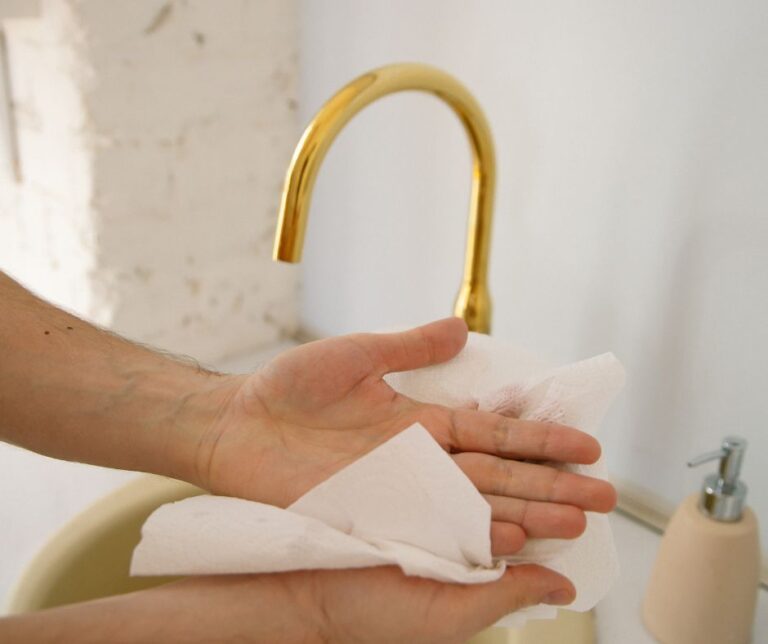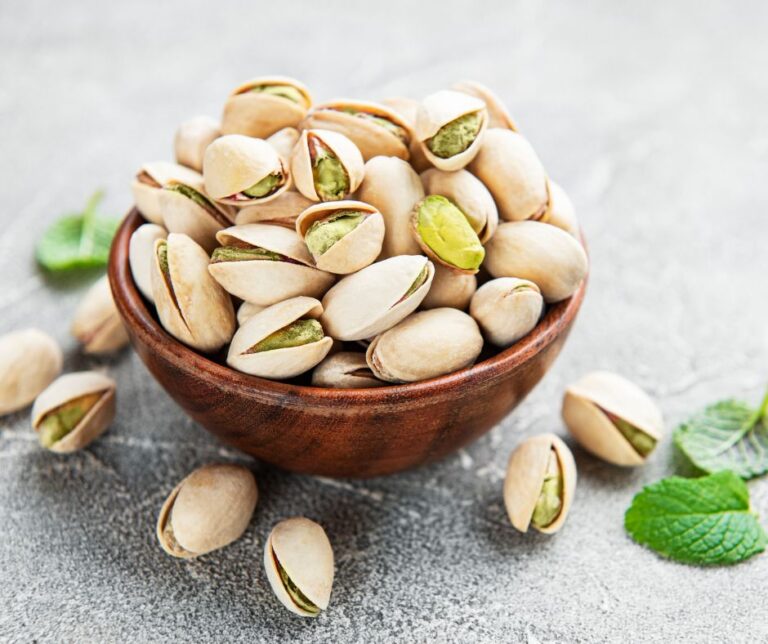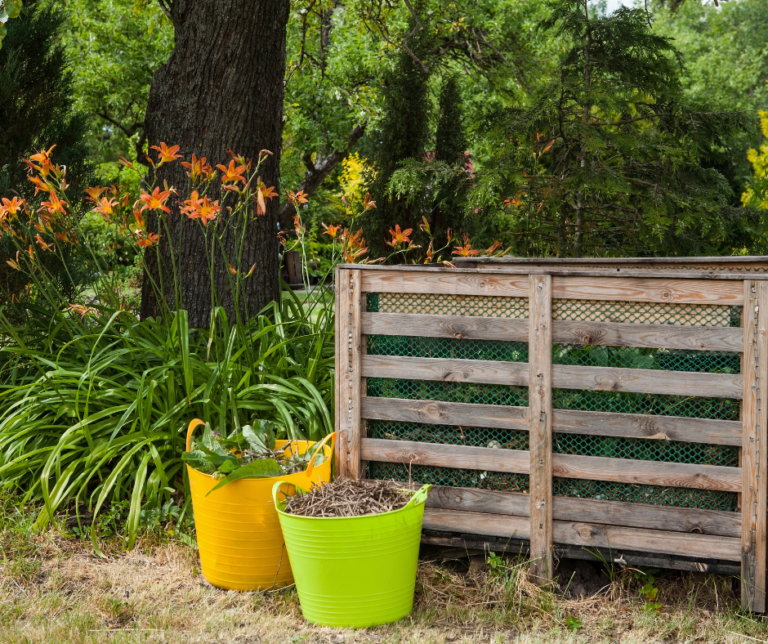Brewing Growth: The Only Compost Tea Recipe You Need
Curious about enriching your garden with compost tea? This guide on the perfect compost tea recipe cuts straight to the chase, offering practical advice on making compost tea and highlighting its direct benefits for your plants. We’ll discuss both basic and advanced brewing methods, and show you how to apply it for maximum garden health, without overwhelming you with excess information.
Key Takeaways
- It is crucial to start the compost tea recipe with quality compost to ensure the efficacy of the brew. Compost tea provides an immediate nutrient boost to plants, improves soil health, and helps reduce pests, making it a potent addition to garden care routines.
- Two methods, non-aerated and aerated, can be employed to create compost tea – enhance the brew with kelp meal and unsulphured molasses thereby encouraging growth of beneficial bacteria through fermentation.
- To obtain optimal results, it is important to avoid common mistakes such as using chlorinated water, dirty equipment, or adding sugar.
- For maximum effectiveness, it is recommended to apply compost tea to plants on a weekly basis.
Discovering Compost Tea: A Gardener’s Elixir

Have you ever thought about the magic that happens in a full compost bin or pile? The organic matter breaks down, and in the process, creates a nutrient-packed substance that plants love. This is essentially what finished compost tea is – a liquid version of this nutrient-rich compost that is convenient and easy to apply.
So, what distinguishes compost tea? It’s the instant nutrient boost it provides to plants. Unlike fertilizers, which can take time to break down, compost tea gives plants access to nutrients right away. And it doesn’t stop there. It also helps keep pests away growing plants, adds nutrients to the soil, and might even increase the microbe population, all contributing to improved plant growth.
Crafting Your Own Compost Tea Recipe

So, you’re convinced about the benefits of compost tea and want to give it a try. Great! Now, let’s talk about how you can brew your own batch at home. The quality of your finished compost tea depends heavily on the compost used, so always opt for the best quality. There are two common ways to brew compost tea – one involves letting compost sit in water, while the other involves oxygen and agitation.
Also, components such as unsulphured molasses, fish hydrolysate, kelp/seaweed, and humic acid can enhance the microbial community’s growth and health in the tea.
Selecting the Right Base: Organic Compost vs. Worm Castings
The base for your compost tea is significant, and you have two excellent choices – organic compost and worm castings. Both these options have their own set of benefits. Worm castings, for instance, provide the soil with important minerals and good microorganisms. They also improve the soil’s water retention capacity, improve soil structure, and even protect plants from diseases and pests.
Organic compost, on the other hand, also enhances the soil’s ability to hold water and nutrients and contributes to overall plant health and root growth. But as we always say, there are two sides to every coin. While worm castings offer numerous benefits, they don’t supply many gardeners with soil with all the Big 3 – Nitrogen, Phosphorus and Potassium (“NPK) nutrients and can be quite expensive for high-quality ones.
On the other hand, using organic compost may not always yield consistent results, and the benefits largely depend on the quality of the original compost. However, even with these limitations, using either as a base for your compost tea can still provide significant benefits to your plants.
The Brewing Process: Aerated vs. Non-Aerated Methods

Now, let’s discuss the brewing process – specifically, the aerated and non-aerated methods. The aerated compost tea method involves infusing the concoction with oxygen, creating a hospitable environment for the beneficial microbes. On the other hand, non-aerated compost tea simply requires compost, water, and time – no fancy bubbling needed. In this context, it’s important to note that aerated compost teas can offer a more efficient way to nurture your plants.
So, which method is better? Well, it depends. The extra oxygen in aerated compost tea encourages the growth of good microorganisms, and it also speeds up the brewing process. However, if the oxygen supply gets cut off, the beneficial microbes could die, causing a microbial community crash. This is why it’s best to use aerated compost tea right after brewing.
Non-aerated compost tea, while easy to make, doesn’t require constant aeration, making it a popular choice for casual gardeners.
Enhancing the Brew: Kelp Meal and Molasses Additives
Once you’ve chosen to make compost tea, and decided on your brewing method, it’s time to talk about additives. Two commonly used additives in compost tea brewing are kelp meal and molasses. Kelp meal aids in fungal growth, while molasses serves as a food source, encouraging the growth of beneficial bacteria through fermentation.
But how much of these should you add to your compost tea recipe? A common recommendation is to use 1 cup of liquid kelp or 2 cups of kelp meal mixed with worm castings, along with 1 cup of unsulphured molasses. If you don’t have kelp meal on hand, don’t worry! You can also use fresh kelp. It contains potassium and micronutrients that can help your plants thrive.
Implementing Compost Tea in Your Garden Routine

Now that you’ve brewed your compost tea, it’s time to put it to work! You can either pour it directly over plant leaves onto the soil or spray it on the leaves. Just remember to dilute it with water before application.
In the context of many gardens, the optimal approach involves the application of compost tea every 2-4 weeks throughout the duration of the growing season, yielding favorable results. But remember, compost tea isn’t a magic potion. It works best when combined with other soil-improving practices.
Soil Drenches: Strengthening Roots and Soil Structure
One way to use compost tea is as a soil drench. This method involves pouring the tea directly onto the soil, allowing the nutrients to seep in and reach the plant roots. Using compost tea as a soil drench can enhance soil fertility, water retention, and the content of organic matter. It also strengthens plant roots by sticking beneficial microbes to them, which aid in nutrient processing.
Applying compost tea as a soil drench is simple. To use the compost tea, follow these steps:
Foliar Sprays: Boosting Plant Health and Pest Resistance
Another way to use compost tea is as a foliar spray. This involves spraying the tea directly onto the leaves of the plants. When used as a foliar spray, compost tea can help manage leaf diseases and make plants healthier overall. It’s like giving your plants a protective shield against diseases and pests.
The best times to apply compost tea as a foliar spray are when you see the first true leaf, and then again one and two months later. During the growing season, you can also spray compost tea monthly or when you water your plants regularly. This regular application helps keep your plants in top shape and ready to fight off any potential threats.
DIY Compost Tea Brewer: Building at Home

Now, if you’re a DIY enthusiast (or just looking for a cost-effective solution), you might be interested in building your own compost tea brewer at home. All you need is some non-chlorinated water, a mesh bag, and a bucket. But remember, the brewing process is crucial, so make sure to let your compost tea brew for about 24 hours for optimal results.
But what if you brew your compost tea for too long? Over-brewing can lead to the growth of harmful bacteria, making the tea less effective. So, keep an eye on your brew and avoid leaving it for too long.
This way, by making compost tea, you ensure your homemade compost tea is packed full of beneficial microbes, ready to boost your plants’ growth and health.
Optimizing Water Quality for Compost Teas

Water and rain water quality is a significant factor when brewing compost tea. Chlorinated tap water can harm the beneficial microorganisms, so it’s important to dechlorinate your water before brewing. One easy way to do this is by letting your tap water sit overnight, allowing the chlorine to evaporate naturally.
But what if you’re in a hurry or don’t have enough space to let your water sit overnight? No worries! You can also use dechlorinator drops for fish tanks or bubble the water with air stones to remove the chlorine. This way, you ensure your water is ready for brewing and bad bacteria won’t harm the beneficial microbes in your compost tea.
Avoiding Pitfalls: Common Compost Tea Mistakes
While brewing compost tea seems simple, there are common mistakes that can affect the quality of your brew.
One such mistake is using chlorinated water. As we’ve discussed, chlorine can kill beneficial microorganisms, so always use dechlorinated water.
Another common mistake is using dirty equipment. Cleanliness is paramount when brewing compost tea to prevent the growth of harmful bacteria.
You should also be careful about the ingredients you add to your compost tea. Adding sugar or other similar substances can encourage the growth of harmful bacteria, such as E.coli or salmonella. These bad bacteria can contaminate your compost tea and harm your plants and soil. Therefore, stick to recommended ingredients and avoid any additives that can harm your brew.
Maximizing the Benefits of Compost Tea

To truly maximize the benefits of compost tea, you need to tailor your compost tea recipe amount, application method, and frequency to your garden’s specific needs. Depending on your garden and plants, you might want to apply compost tea every time you water, once a week, or when you change the reservoir if you’re using hydroponic systems. Remember, compost tea works best when combined with other soil-improving practices, so don’t rely on it alone.
Applying compost tea at important growth stages can also enhance its benefits. Start when the first true leaf shows up, then again one to two months later. This gives your plants a nutrient boost just when they need it most, promoting plant root growth. And don’t forget, compost tea isn’t just for outdoor gardens. It can also work wonders for your indoor plants, providing them with a steady supply of nutrients and helping them thrive.
Tailoring Compost Tea for Indoor and Outdoor Plants
Whether you have a sprawling outdoor garden or a cozy indoor plant setup, compost tea can be a game-changer. For indoor plants, replacing regular watering with diluted compost tea once or twice a month can provide a nutrient boost without overloading your plants. You can use compost tea made from a few shovelfuls of well-rotted compost mixed with double the volume of water or from organic kitchen scraps like banana peels, onion skins, eggshells, and coffee grounds.
For outdoor plants, a mixture of compost tea with water applied in the morning can give the best results. The morning application allows the plants to absorb the nutrients throughout the day and can also help prevent foliar diseases if used as a spray. Remember, the key to success with compost tea is tailoring the recipe and application method to your plants’ specific needs.
Conclusion
Compost tea is a powerful tool in any gardener’s arsenal. This nutrient-rich brew can boost plant growth, improve soil health, and protect against pests and diseases. Brewing your own compost tea at home allows you to tailor the recipe to your garden’s specific needs, ensuring optimal results.
Whether you’re a seasoned gardener or a beginner, compost tea offers a natural, cost-effective solution for a healthier, more vibrant garden. So, why not give it a try? Your plants will thank you! Happy gardening!
Frequently Asked Questions









